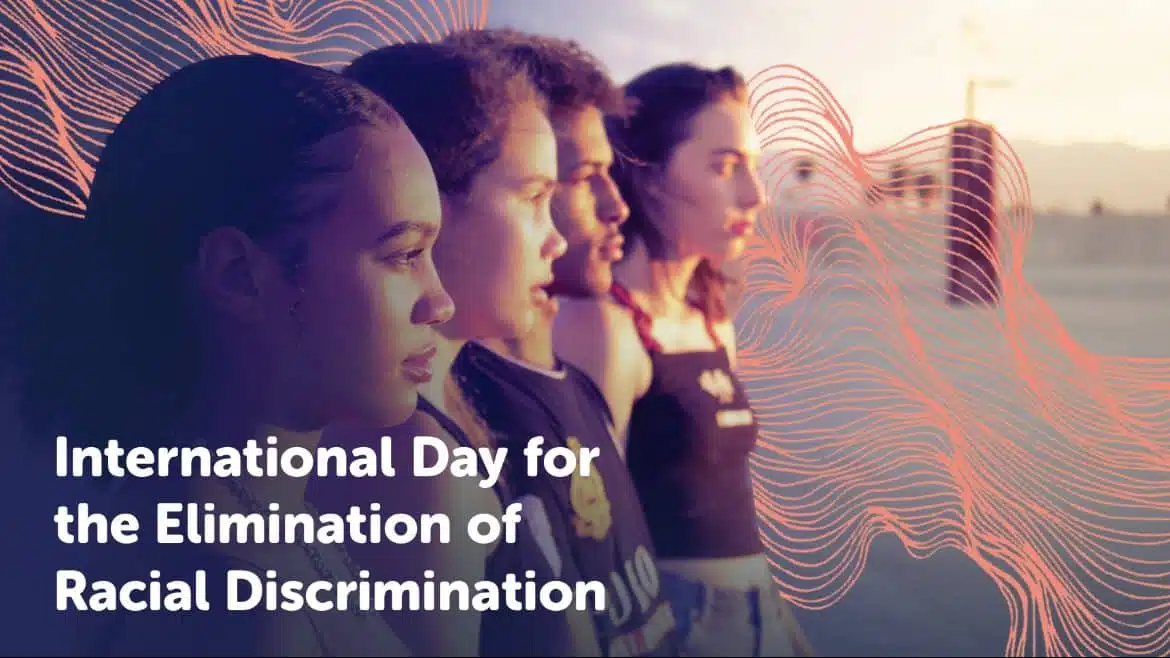Diversity is a Superpower: Celebrating the International Day for the Elimination of Racial Discrimination

The International Day for the Elimination of Racial Discrimination commemorates the day that police opened fire and killed 69 people at a peaceful demonstration in Sharpeville, South Africa. These protestors were rallying against the apartheid “Pass Laws,” which required all indigenous Africans over the age of 16 to carry a passbook everywhere they went. This long-standing practice served to severely restrict and control travel, dictating when, where and for how long black South Africans could stay within white areas.
Needless to say, the effects and disadvantages of racism are felt long after that fateful day. The United Nations made a convention to ensure that the world would never forget the horrors of racism, and commit to reality that leaves no room for tolerating it. The International Convention on the Elimination of All Forms of Racial Discrimination has been ratified and instated into local constitutions in nearly all UN member countries.
What is ‘racism’?
It can be daunting to define a phenomenon that cannot be measured, tested or objectively analyzed. However, that doesn’t make it any less important to identify and eradicate. According to the Ontario Human Rights Commission, racial discrimination is biased behavior based on an ideology that (directly or indirectly) asserts that one group is inherently superior to others. Discrimination is manifested in many different forms, including:
racial jokes and slurs or hate crimes
attitudes, values and stereotypical beliefs
prejudices deeply embedded in systems and institutions that have evolved over time.
It is important to note that racism operates at a number of levels – individual, systemic and societal. They can often be implicit and invisible to the naked eye, but its repercussions are felt everyday by Black, Indigenous, People of Colour (BIPOCs).
What can we do to eliminate racism?
- Awareness is everything.
Between microaggressions in the workplace to outright racial violence, we have a duty and responsibility to speak up and condemn such discriminatory behaviors. Spreading awareness publicly and within private circles makes it harder for people to ignore their faults or enable racist ideologies. Encouraging individuals, especially people you know personally, to correct their discriminatory behavior can be an uncomfortable conversation. However, these steps are equally (if not more) important to make progress and eliminate racism as we know it. - Re-write the Law.
Racism is an institutional and systemic disease. Historically, there were many policies and legislations that limited the rights of BIPOCs, and the spillover legacy of those laws affect and demoralize BIPOCs, even today. The Canadian Race Relations Foundation (CRRF) acknowledges this divided constitutional history because it is an important and extremely consequential step in fixing race relations and righting previous wrongs. Laws dictate our moral consciousness of what is right and wrong, as it is intended to serve justice – calling out racist legislation is an important step in shaping our civilization to be more inclusive and thoughtful towards the needs of a multicultural community. - Being ‘colour blind’ is being ignorant.
“I don’t see colour” – it is a common misconception that being inclusive translates to ignoring someone’s race and treating everyone the same. However, perpetuating this “colorblind” ideology actually contributes to racism, because it fails to acknowledge the painful history and current disadvantages faced by BIPOCs because of the colour of their skin. Such schools of thought are dismissive and reductive towards one’s identity, and we must commit to seeing colour and promoting a diverse and equal world that celebrates this diversity. - Empathize, evaluate and exemplify.
Realizing your own privilege or examining your own inherent biases are a crucial part of eliminating racial discrimination, as change always starts from within. Because we are conditioned to a society that is designed to segregate race and institutionalize biases, it can be difficult to observe oppression and discrimination, especially if it does not affect us (or someone we know) directly. However, listening to and understanding those who have experienced such biases can help you bridge this knowledge gap. Moreover, supporting campaigns, charitable organizations and activist groups that condemn racial discrimination can help exemplify your support and produce tangible progress as an ally and supporter of the BIPOC community.
In our diverse and multicultural world, we should celebrate and appreciate the contributions and capabilities that BIPOCs offer, especially in predominantly Caucasian societies. Ms. Audrey Azoulay, the Director General of UNESCO, offered a refreshing ethos behind ethnic diversity:
“Because difference is a source of richness, of strength. The diversity of humans and human civilizations is what makes the world more beautiful. In the words of Mali’s Amadou Hampâté Bâ, “How boring and monotone a uniform world would be, one where everyone, cut from the same cloth, thought and lived the same way! Without anything to discover within others, how would we enrich ourselves?””
You can read her entire message here.
Anti-Racism Initiatives at UWaterloo
XChanges: Borders of Being
The University of Waterloo student-led service RAISE and the Wilfrid Laurier University Students For Palestinian Rights present: XChanges: The Borders of Being. This conference embodies the work of Dr. Angela Davis’: Freedom is a Constant Struggle Ferguson, Palestine, and the Foundations of a Movement. This two-day conference features speakers and educators representing government, academia, activism, education, health, and urbanism who, with decades of collective knowledge and experience within their respective fields.
Racial Advocacy for Inclusion, Solidarity and Equity (RAISE)
RAISE serves to address racism and xenophobia on the University of Waterloo campus with initiatives reflective of RAISE’s three pillars of Education and Advocacy, Peer-to-Peer Support, and Community Building. The initiatives include but are not limited to: formal means to report and confront racism, accessible and considerate peer-support, and organization of social events to cultivate both an uplifting and united community.
Student Success Office and AccessAbility Services Anti-Racism Initiatives (SAARI)
This initiative’s work is meaningfully anti-racist by design and Black, Indigenous, and other racialized students and staff are actively engaged as integral contributors to the unit, fully supported and able to thrive. Leadership and staff members champion anti-racist perspectives in the work they do and have access to resources and supports to continually grow their knowledge. Primary goals include addressing racism within their work through review, design, delivery and assessment of programs, services, strategies and communications.
The President’s Anti-Racism Taskforce (PART)
PART is dedicated to amplifying BIPOC voices and learning from their insight and experience. Engagement and transparency not only with these community members, but with everyone on campus, will also continue to be hallmarks of this work and everything done at the university.
Read the latest updates on the PART progress in the latest edition of The Catalyst Newsletter.
Confronting Anti-Black Racism e-Learning Course
The Office of Equity, Diversity, Inclusion & Anti-racism is excited to launch an e-learning course called Confronting Anti-Black Racism. This course is based on Dr. Christopher Taylor’s Arts 130 course that ran in the Fall 2020. Thanks to Dr. Taylor’s generosity, this course is now available to all Waterloo students, faculty and staff and is an opportunity for (un)learning and gaining tools to better take anti-racist action in our own lives, at work, home and in our communities.
Anti-Racism Resources
A non-exhaustive list of resources intended to help students, faculty, and staff at the University of Waterloo in developing a deeper understanding of anti-Black racism, racism toward Indigenous folks and people of colour; as well as provide tools for campus community members to engage in anti-racism work across campus.
Published: Monday, March 21, 2022
